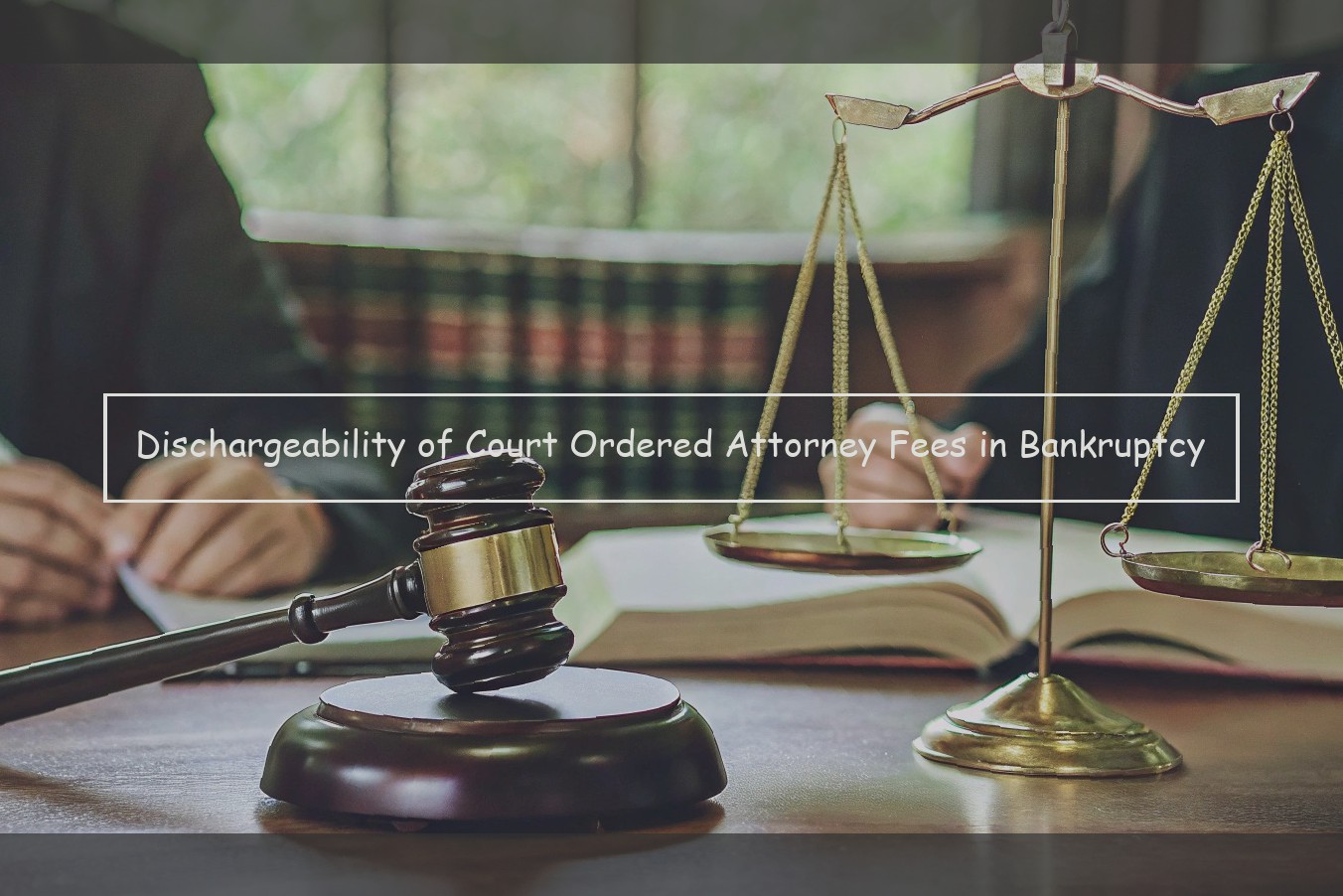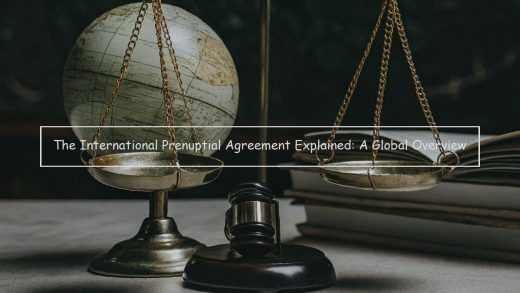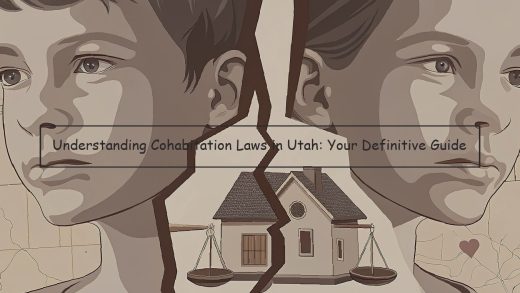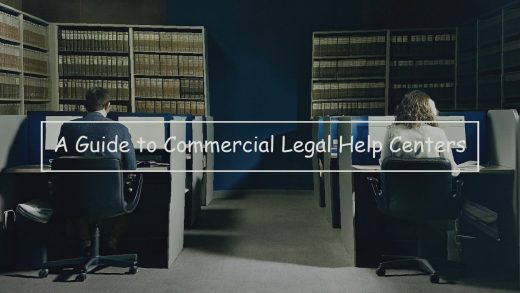Court Ordered Attorney Fees Explained
Court ordered attorney fees, as the name implies, are awarded by a Court if it has jurisdiction over the parties to a lawsuit and the authority to award the fees. They can be found in a wide range of statutes including state consumer rights laws (for example, attorneys’ fees may be specifically awarded if state Lemon Laws apply) and most federal statutes that provide for attorney fees to be awarded against one party or another might fall into this category (for example, fee shifting statutes, certain fraud statutes, and the like), and certain family law proceedings (certain family states provide that the court may order one spouse to pay the other spouse’s attorney fees upon granting relief from abuse, alimony, and a divorce).
Most of the time, orders for attorney fees are granted in the context of a bad faith defense. For example, in a bankruptcy context, debtors might find themselves facing attorneys’ fee awards where the creditor is acting in bad faith. Courts have the right to deny, or award, fees whether or not a debtor’s behavior was bad faith or creditor’s behaviors was bad faith.
Costs of the litigation, which can include fees for experts, discovery, depositions and appearance fees, may be awarded as well. In the bankruptcy context, when a creditor makes frivolous allegations in a court document or in court, without any basis in fact or law, Courts have found that such actions constitute bad faith and attorneys’ fees can be awarded to cover some of the costs of opposing the motion .
As an example, in the case of Matter of Gookin, the United States Bankruptcy Court for the Western District of Pennsylvania awarded attorneys’ fees to Debtors on the basis of the creditor’s bad faith actions towards them. It was argued that the creditor had violated the Pennsylvania Consumer Protection Act and that such violation was grounds for an award of attorneys’ fees. The Court found that the Creditor’s motion for the seizure of certain property constituted a violation of the former 73 P.S. section 201-9.2(i) which provided in relevant part that: "The provisions of this act shall be liberally construed and applied to promote the purposes thereof and, to this end, a court may award to the prevailing buyer or lessee in any action brought by the buyer or lessee in accordance with this act reasonable attorney fees and costs and expenses paid by the buyer or lessee."
Each state has its own applicable statutes, which should be reviewed to determine whether or not a fee award may be made in that particular case, or to either party. If such an award can be made, there is a good chance the Court would exercise jurisdiction to award those fees if it sees fit. It is always important to make sure that objections to unreasonable fees are timely made, however, or the Court may rule against the objecting party on the notion that it should have already raised the objection.

Bankruptcy and Debt
A very basic discussion of bankruptcy and its intended purpose is first introduced here. Bankruptcy is an area of the law that allows individuals and businesses to have a "fresh start" unburdened by the debt they are carrying. Depending upon the rules and regulations applicable under bankruptcy, the debt is placed into various categories. The debt is then either wiped out or must be paid over time. The two most common forms of bankruptcy are Chapter 7 and Chapter 13. A chapter 7 bankruptcy is a liquidation bankruptcy. In this form of bankruptcy the debtor must give the Bankruptcy Court a list of their debts, its value , the contacts for each creditor, its asset value and its income. Within such bankruptcy, there is some debt such as house payments that must be continued by the debtor. Chapter 13 is generally repaying a debt that one might not have been able to repay as a result of a squeeze in the economy. Under such circumstances, the Chapter 13 Bankruptcy Court puts a formula together for repayment which is generally on a monthly basis. Under specified circumstances, regardless of the type of Bankruptcy filed, the debt may be wiped out or eliminated. Depending upon the type of bankruptcy filed it determines whether a debt survives or not. In the case of an attorney’s fees, whether in a domestic or a civil matter, depending upon the type of bankruptcy filed a debtor may be discharged of the obligation to pay attorneys fees.
Are Attorney Fees Dischargeable?
In general, the filing of a bankruptcy stays the collection of any debt from the debtor. The United States Supreme Court has held that "debt" under the Bankruptcy Code includes all forms of litigation liability, including costs of suit, attorney’s fees, and even punitive damages, which would not be considered "debt" in a non-bankruptcy context. Cohen v. de la Cruz, 523 U.S. 213, 216-226 (1998). Thus, in the absence of any statutory provision making specific types of court ordered attorney’s fees exempt from discharge, such as one of the domestic obligations described in Section 523(a)(5) of the Bankruptcy Code, bankruptcy would ordinarily apply to court ordered legal fees just like any other liabilities.
However, the Fifth Circuit Court of Appeals has held that the long-held common law "American Rule," and its progeny codified in Section 1717 of the California Civil Code, create an exception to this general rule. In Calhoun v. Copeland Cook Trade Servs., Co., 298 F.3d 673 (5th Cir. 2002), the debtor filed bankruptcy after judgment was awarded that incorporated the attorneys’ fees that had been incurred in the litigation that gave rise to the judgment, but left the amount of the fees to be determined in a subsequent proceeding. After the debtor received a discharge in bankruptcy, the creditor sought to enforce the judgment for its attorneys’ fees.
The Fifth Circuit held that the creditor’s attorneys’ fees were discharged in the debtor’s bankruptcy because, under the American Rule and Section 1717, a "court award of attorney’s fees is paid from the assets of the losing party and not from the assets of the prevailing party." Id. at 680. Thus, "[i]n the event that those assets are discharged in bankruptcy, the underlying debt is discharged as well." Id. at 681. The court reasoned that since the creditors’ claim for attorneys’ fees was based upon his own liability for the fees and not the debtor’s, it was not an exception to the general discharge rule in bankruptcy under Cohen.
Chapter 7 or Chapter 13: Attorney Fees
Chapter 7 and 13 Treatment of Court Ordered Attorney Fees
For Chapter 7 debtors, most court ordered attorney fees when that award is made against the debtor personally are fully discharged along with other general unsecured debts of the debtor. These awards are also generally included in the general unsecured claims pool created by the Chapter 7 trustee.
The only exception to this general rule is where the award was specifically made in connection with the divorce. If a divorce decree orders a party to pay a specific amount in fees to the other party, and the fees are not divisible in time periods (for example, with the other party responsible for one-half of the fees incurred in a case for a period of months), the amount awarded for fees will not be discharged in a Chapter 7 bankruptcy.
Fees related to paternity actions, and awards made to custody and property division orders of a divorce, are also included in the scope of a Chapter 7 discharge .
In Chapter 13 cases, after the debtor files his petition for bankruptcy, the debtor, and not the Chapter 13 trustee, will likely pay the family law attorney the balance due for pre-bankruptcy services and for ongoing representation in the Chapter 13. Since the family law attorney has elected to continue representing the debtor beyond the bankruptcy filing date, the fees incurred in the Chapter 13 case would be considered to be in the nature of a ‘general unsecured claim’ and as such would be treated by the Chapter 13 trustee. The fees would then be paid according to the treatment given to general unsecured claims as found in the debtor’s Chapter 13 plan. After completing all payments required by a Chapter 13 plan, including any payments related to pre-petition family law attorney fees, the remaining balance of the debtors’ obligation to pay the family law attorney for those fees would be a discharged debt.
Recent Case Law and Trends
Courts have consistently wrestled with the issue of whether court ordered attorney fees are subject to discharge in bankruptcy. The First Circuit Bankruptcy Court recently addressed, among other things, whether the answer to that question depends on whether the award was based on a lawsuit between the debtor and the creditor seeking fees, or instead, grew out of a post-judgment dispute. In In re Leal, Case No. 18 -12287 (1st Cir. BAP July 22, 2019), a husband and wife were awarded attorney fees for successful litigation against a debtor over breach of a 2008 divorce agreement. The award, which totaled over $1 million, consisted of $237,990.50 awarded to the wife against the debtor for fees and costs incurred pursuing the child support modification which benefitted the child, and $777,224.12 awarded to the husband against the debtor for fees incurred in pursuing the child support modification and enforcement of the 2008 divorce agreement.
The debtor listed the wife’s $237,990.50 judgment as non-dischargeable and the husband’s $777,224.12 judgment as dischargeable. On the wife’s appeal, the bankruptcy court held that the entire debt was non-dischargeable because the husband’s $777,224.12 judgment was based on the prepetition 2008 divorce agreement. In affirming, the United States Bankruptcy Appellate Panel noted that a Bankruptcy Court may properly deny a discharge of debt which is based upon prepetition conduct, even if the obligation was discussed and reserved in a post-judgment order. Explaining that when the receiving party seeks court intervention in order to obtain payment, the specific purpose is relevant to its potential dischargeability.
In analyzing the husband’s appeal, the B.A.P. found that the bankruptcy court properly dismissed the husband’s claim that the entire $1 million-plus award was based upon pre-petition conduct where the husband only requested an award of a portion of that amount to be declared non-dischargeable and the remainder to be declared dischargeable.
The B.A.P. further explained that the husband’s appeal was premised upon his argument that the Court should take into consideration the spirit and intent of the 2008 divorce agreement in determining whether the entire $1 million was non-dischargeable. Concluding that the Court did not err in failing to consider the spirit and intent of the divorce agreement in determining whether the debt is non-dischargeable, the Court reasoned that the interpretation of the 2008 divorce agreement should not be determinative of the dischargeability issue. Instead, the analysis should focus on the debtor’s conduct and resulting liability to the creditor, to determine whether the particular debt arose from the debtor’s willful and malicious conduct that resulted in a judgment.
Key Takeaway: This case appears to be a departure from the current trend in Florida. Here, by contrast to Lehman v. Lyss( In re Lehman), No. 6:04-bk-01256, 2006 WL 1649000 (Bankr. M.D. Fla. Mar. 7, 2006), the Court determined that the debt was non-dischargeable even though it did not result from a lawsuit brought between the debtor and the creditor.
Speak to a Bankruptcy Lawyer
As with most of the questions addressed in this article, consulting with an experienced bankruptcy attorney is essential for gathering specific advice. Each case is unique and requires analysis of the entire set of circumstances. A good bankruptcy attorney will be able to offer guidance regarding whether a particular type of debt falls under the discharge , as well as whether a judge may impose an exception to that discharge as a result of bad acts.



